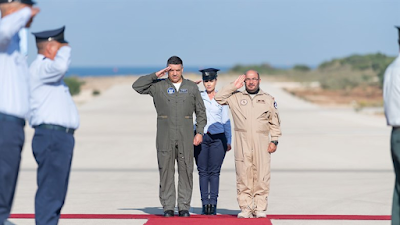The Israel Air Force summed up the years in which Major General Amikam Norkin commanded the force, ahead of the change of commanders next week and the entry of the new commander, Tomer Bar, into his position. Norkin served as commander of the Air Force since 2017.
The main goals, according to corps officials, are all directly or indirectly related to Iran. Among them was a stubborn war against Iran's entrenchment in Syria and throughout the Middle East and raising the Air Force's readiness for a possible attack on Iran's nuclear facilities if necessary.
The Air Force is concerned about the Iranian establishment along several of Israel's borders, not only due to the military threat but also due to the fact that Iranian technology is different from that sold to the military and this is very troubling to the senior echelons.
In recent years, the Air Force has faced another challenge: activity with friendly armies operating in areas near the Israeli border, the main one being the Russian army.
As part of raising preparedness and assessments for the future, the Air Force has embarked on streamlining processes, and equipping 4th and 5th generation fighter jets. The changes are intended to ensure the Air Force's air superiority in the area for the coming years and that by 2035 the Air Force will have three operational F-35 squadrons with about 50 fifth generation fighter jets scheduled to arrive by the end of 2022.
Sources also estimate that "after the signing of Abraham's agreements with the Emirates, Bahrain and Morocco, and the convergence of moderate countries in the region against Iran such as Egypt and Jordan, an opportunity has been created to form an international coalition."
"Creating strategic depth will allow the Air Force to deal with threats far from the border and receive preliminary intelligence from partner countries. It is not far off today for Israel to sign a regional defense alliance in a format similar to NATO's in Europe with countries in the region," the sources said.

